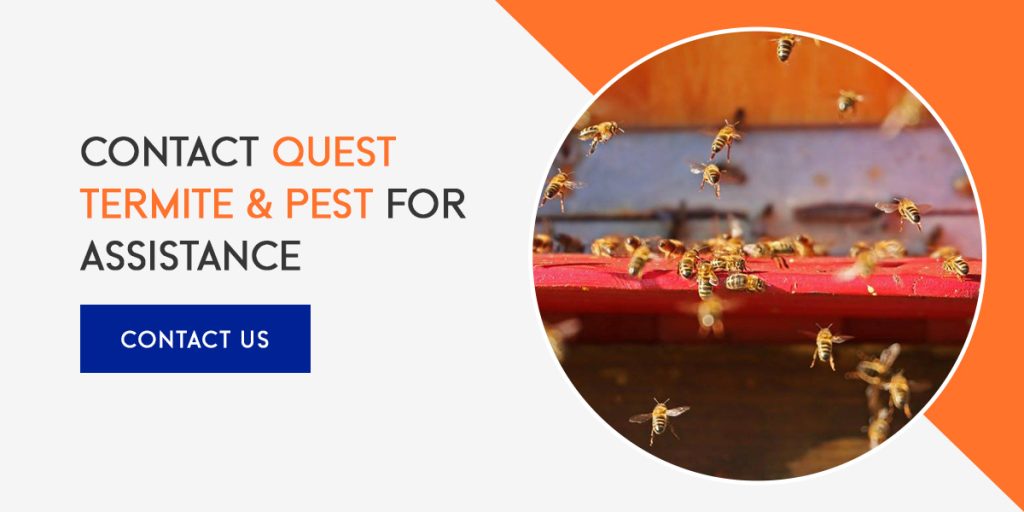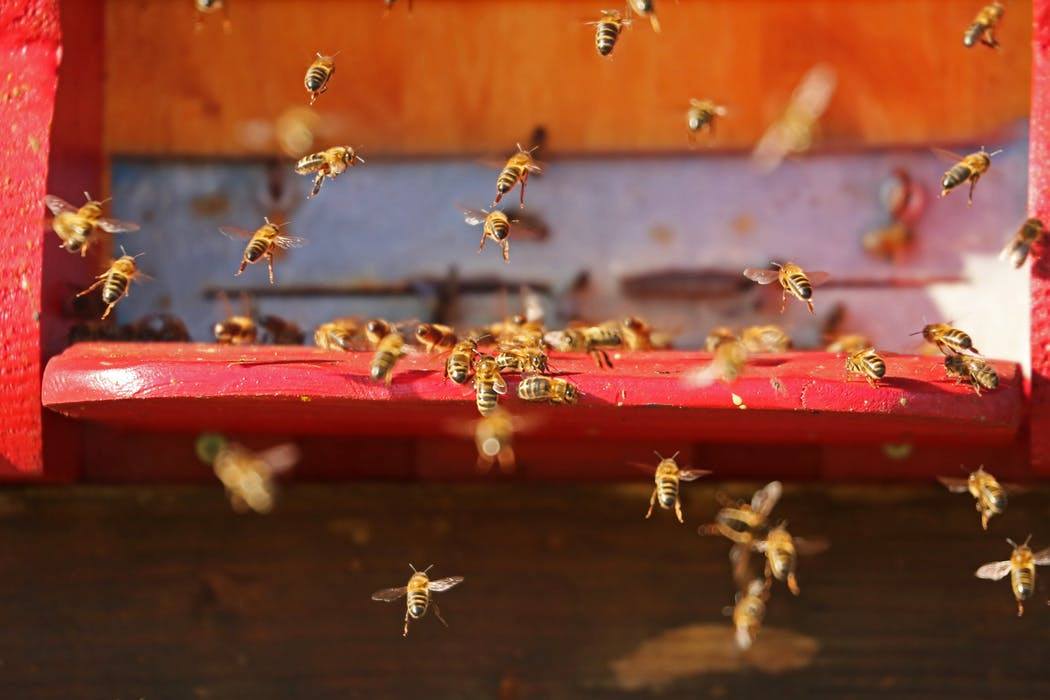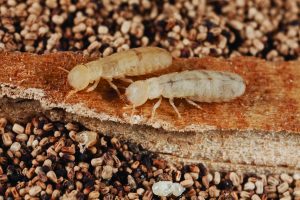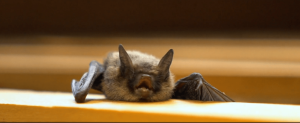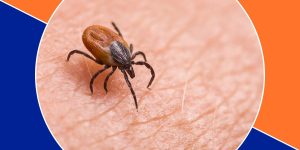Your home is supposed to be a place you can relax. This is hard to do when you have bees, hornets, or wasps flying around. Stubborn pests like to make themselves comfortable for weeks at a time much to your despair. Here’s how to get rid of bees in or around your house for peace of mind.
Why Are Bees Making a Nest Around Your House?
Odds are, your home is in an ideal location for worker bees.
Bees are most active from March through July — known as the swarming season. At this time, bees gather pollen and store it to prepare for cold weather.
There is a surplus of worker bees leaving and returning to the hive during these months. Once overcrowding becomes an issue, hives split up and form new nests close to the original.
Your home could be targeted due to the desirable vegetation, sunlight, or moisture nearby.
Signs You Have Bees in Your Walls
Bees are usually easy to detect. There are bees living on your property if you notice:
- Loud buzzing sounds indoors or around the yard
- An increase in bee populations inside or outside
- An active hive on your property
- Dark patches or drops of honey on the walls
How to Get Rid of Bee, Hornet, and Wasp Nests
Figuring out how to get rid of bees in walls, roofs, or other areas of the home requires you to identify the species. Work with a trained professional to make bees, hornets, and wasps go away:
- Carpenter bees: These insects prefer untreated wood for nesting. Baiting and trapping methods help get rid of large populations.
- Yellow jackets: Spray treatments help control yellow jacket numbers.
- Hornets and wasps: These pests look for shady and warm locations to nest and hibernate. A pest control expert is needed to remove nests and spray for your safety.
Pest Control Services for Bees in Pennsylvania
You require the help of a trustworthy team to get to the bottom of a bee or wasp infestation. Quest Termite & Pest is here for Pennsylvania homeowners in Lehigh Valley, Bucks County, and surrounding areas. Whether you need bee nest removal or routine treatments, you can feel confident in our Integrated Pest Management (IPM) approach.
